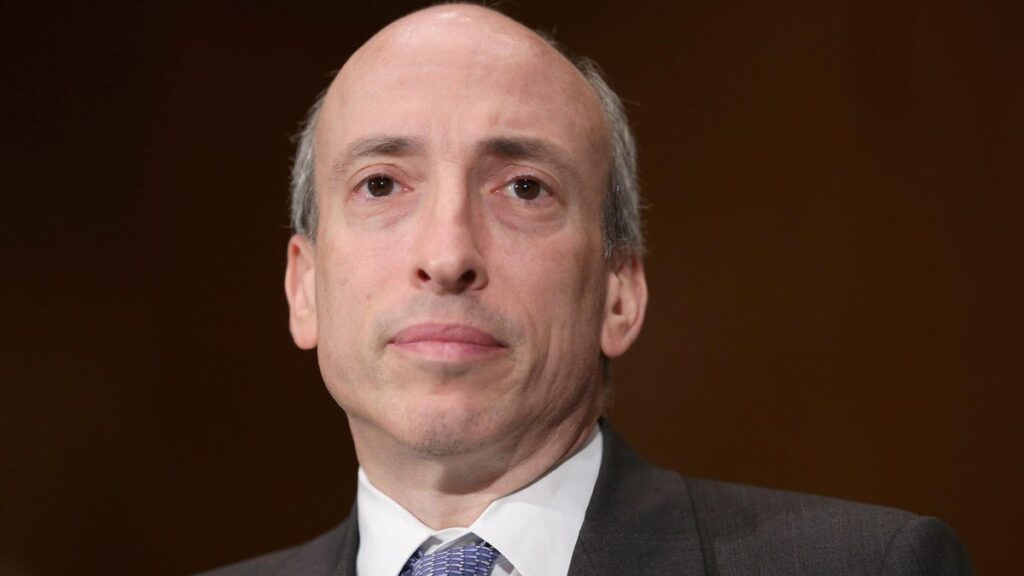A recent study conducted by an Ethereum researcher has raised concerns over the privacy of staking on the platform, suggesting that users’ IP addresses may be exposed during the process. This revelation has sparked a discussion about the security and privacy of Ethereum, the world’s second-largest cryptocurrency by market capitalization.
The researcher, who prefers to remain anonymous, discovered that when Ethereum users participate in staking, their IP addresses become publicly visible. The issue arises due to the design of Ethereum’s staking mechanism, which relies on validators to confirm transactions and create new blocks. Validators are chosen at random from those who have staked their Ethereum tokens, and the process of staking and validating transactions exposes their IP addresses.
This exposure of IP addresses raises significant privacy concerns for Ethereum users, as IP addresses can reveal personal information such as location, Internet Service Provider (ISP), and browsing habits. The revelation has led to concerns that attackers could use this information to target specific individuals, exposing them to potential cyber-attacks and other risks.
Privacy advocates argue that the exposure of IP addresses undermines one of the core principles of cryptocurrencies: providing a secure and anonymous means of transacting. They maintain that this flaw could deter potential users from participating in Ethereum’s ecosystem, leading to reduced adoption and a subsequent impact on the value of the cryptocurrency.
However, not everyone agrees with these concerns. Some experts argue that the risk associated with IP address exposure is minimal and that the benefits of staking outweigh any potential privacy issues. They point to the fact that many Internet users already have their IP addresses exposed through everyday activities such as browsing websites, using messaging apps, or engaging in online gaming.
Despite the ongoing debate, it is clear that the exposure of IP addresses during Ethereum staking has raised questions about the platform’s privacy and security. It remains to be seen whether the Ethereum community will take steps to address these concerns, or if users will have to rely on additional privacy measures, such as VPNs or proxy servers, to protect their IP addresses during staking.
Amid recent discussions about a potential Bitcoin bear market, a closer analysis of the cryptocurrency’s price trends reveals striking similarities to previous halving cycles. This observation suggests that Bitcoin’s current price movements may be part of a larger, predictable pattern, challenging the notion that the market is entering a prolonged downturn.
Bitcoin halving events, which occur roughly every four years, reduce the reward miners receive for successfully validating transactions. These events have historically had a significant impact on the price of Bitcoin, with the cryptocurrency typically experiencing a period of growth following each halving.
Comparing the current price trajectory of Bitcoin to that of previous halving cycles reveals a close correlation between the two. This suggests that rather than entering a bear market, the leading cryptocurrency may be following an established pattern of growth and consolidation that has been observed in the past.
The notion that Bitcoin’s price trends are following a familiar trajectory challenges the prevailing sentiment among some investors that the market is heading for a prolonged downturn. Instead, historical price patterns indicate that the cryptocurrency may be poised for further growth, albeit with potential periods of consolidation and volatility along the way.
This perspective is supported by the continued interest in Bitcoin and the broader cryptocurrency market from both retail and institutional investors. Despite occasional market turbulence, the overall trajectory of the cryptocurrency sector remains one of growth and increasing adoption.
As the market continues to evolve, the relationship between Bitcoin’s price and halving cycles will remain a subject of interest for investors and analysts alike. The observation that the leading cryptocurrency’s price trends closely mirror those of previous halving cycles may offer valuable insights into the future direction of the market and challenge prevailing assumptions about the onset of a bear market.
Social media giant Twitter is reportedly preparing to launch cryptocurrency and stock trading features in partnership with online trading platform eToro. The innovative collaboration aims to integrate trading functionality directly into the Twitter platform, potentially revolutionizing the way users engage with the world of finance.
The partnership between Twitter and eToro, a platform that offers trading services for cryptocurrencies, stocks, and other assets, seeks to capitalize on the growing intersection of social media and finance. By offering users the ability to trade various assets directly from the Twitter platform, the collaboration could transform the way users interact with financial markets and accelerate the mainstream adoption of digital asset trading.
Details about the trading features and launch timeline remain limited, but the partnership is expected to leverage eToro’s existing infrastructure and expertise to create a seamless and user-friendly experience for Twitter users. If successful, this collaboration could pave the way for further integration of financial services within social media platforms, blurring the lines between communication, content sharing, and asset trading.
The potential launch of cryptocurrency and stock trading on Twitter comes at a time when interest in digital assets and online trading is surging. The rise of meme stocks, decentralized finance (DeFi), and non-fungible tokens (NFTs) has generated significant enthusiasm among retail investors, many of whom rely on social media platforms like Twitter for information and community engagement.
While the implications of this partnership for the broader financial industry remain uncertain, the collaboration between Twitter and eToro could signal a new era of convergence between social media and finance. As users increasingly turn to online platforms for financial services, the integration of trading features within Twitter may serve as a blueprint for the future of digital asset engagement and accessibility.
Cryptocurrency exchange giant Coinbase has emerged victorious in a legal battle surrounding insider trading, securing restitution of $470,000. The case, which centered on allegations of trading malpractice, highlights the ongoing challenges faced by the rapidly evolving cryptocurrency industry as it seeks to establish and maintain regulatory compliance.
The lawsuit involved a former employee of Coinbase, who was accused of engaging in insider trading activities on the exchange platform. The defendant allegedly used confidential information to execute trades ahead of significant market events, generating profits at the expense of other traders and undermining the integrity of the exchange.
Coinbase took swift action to address the situation, initiating legal proceedings against the former employee and seeking restitution for the damages incurred. The court ruled in favor of Coinbase, granting the company $470,000 in restitution and sending a clear message that insider trading activities will not be tolerated within the cryptocurrency industry.
The legal victory for Coinbase comes as the cryptocurrency sector faces increasing scrutiny from regulators worldwide. As the industry continues to grow and mature, the need for stringent compliance measures and adherence to regulatory guidelines has become paramount. The successful pursuit of this insider trading case highlights Coinbase’s commitment to maintaining a fair and transparent trading environment for its users.
While the restitution award is a positive outcome for Coinbase, the incident serves as a reminder of the challenges that cryptocurrency exchanges and the wider industry face in establishing a compliant and trustworthy market. As the sector continues to evolve and attract mainstream interest, the need for robust regulatory frameworks and ongoing vigilance against malpractice will remain crucial in maintaining the integrity of the cryptocurrency market.
In a bid to rival OpenAI’s ChatGPT, Chinese tech behemoth Alibaba is set to roll out a competing AI language model. The company’s new AI offering aims to capture a share of the rapidly expanding market for advanced language processing and automation solutions.
Alibaba’s decision to enter the AI language model arena is a strategic move, as the demand for natural language processing and conversational AI technologies continues to soar. These technologies are revolutionizing industries such as customer service, content generation, and data analysis, making them increasingly valuable to businesses worldwide.
OpenAI’s ChatGPT has become a market leader in this space, with its advanced language understanding and generation capabilities. The AI model’s ability to engage in human-like conversations and provide detailed responses has made it a popular choice for businesses seeking to automate tasks and improve efficiency.
By developing its own AI language model, Alibaba hopes to challenge ChatGPT’s dominance and carve out a niche for itself in this highly competitive market. The Chinese tech giant has a strong track record in the field of artificial intelligence, with its cloud computing arm, Alibaba Cloud, offering a wide range of AI and machine learning services to clients across the globe.
While details about Alibaba’s AI language model remain scarce, the company’s expertise in AI and cloud computing suggests that it could develop a formidable competitor to ChatGPT. If successful, Alibaba’s AI offering could transform industries, create new business opportunities, and accelerate the adoption of AI-powered language processing technologies.
As the battle for AI supremacy heats up, industry experts will be closely monitoring the progress of Alibaba’s AI language model and its potential impact on the market. The race between Alibaba and OpenAI to create the most advanced and versatile AI language model could have significant implications for the future of artificial intelligence and its applications across industries.
As the market eagerly awaits this week’s release of the Consumer Price Index (CPI) data, Bitcoin has experienced a significant rally, with its price surging to $29,400. The CPI data, a key indicator of inflation, often influences investor sentiment and can impact the value of various assets, including cryptocurrencies like Bitcoin.
The recent rally comes after a period of relative stability for the world’s leading cryptocurrency, with its value oscillating around the $28,000 mark. The CPI data release has the potential to trigger further price movement for Bitcoin, as traders closely monitor inflation trends to gauge the overall health of the economy and adjust their investment strategies accordingly.
Historically, Bitcoin has been viewed by some investors as a hedge against inflation, with the cryptocurrency’s decentralized nature and limited supply making it an attractive alternative to traditional fiat currencies. As a result, an increase in inflation could potentially boost demand for Bitcoin and drive its price higher.
However, the relationship between inflation and Bitcoin’s price remains complex and subject to debate. Some analysts argue that the cryptocurrency’s volatility and unpredictable price movements make it an unreliable store of value during periods of economic uncertainty. Additionally, the increasing popularity of other cryptocurrencies and digital assets could dilute Bitcoin’s appeal as an inflation hedge.
Despite these uncertainties, the recent rally in Bitcoin’s price has generated significant interest among traders and investors. As the market braces for the release of this week’s CPI data, all eyes will be on the potential impact of inflation trends on the value of Bitcoin and other digital assets.
The coming days will reveal whether the Bitcoin rally can be sustained and whether the cryptocurrency can further solidify its position as a viable hedge against inflation. Regardless of the outcome, the interplay between economic indicators and digital asset prices remains a fascinating area of study for market observers and participants alike.
Binance US, the American subsidiary of the world’s largest cryptocurrency exchange, is reportedly encountering difficulties in securing banking partnerships within the United States, according to a recent report. This setback could potentially impact the company’s operations and its ability to cater to the growing demands of the American crypto market.
The report suggests that Binance US’s struggles in forming partnerships with American banks stem from concerns surrounding the regulatory status of its parent company, Binance. Regulators in several countries have recently scrutinized the global exchange, leading to increased wariness among potential banking partners.
The inability to secure partnerships with domestic banks could pose significant challenges for Binance US, hindering its capacity to provide seamless services to its American customers. This issue underscores the importance of regulatory compliance for cryptocurrency exchanges and the potential consequences of inadequate adherence to regulatory frameworks.
Despite the setbacks, Binance US continues to operate and serve its American customer base. The exchange has made efforts to ensure compliance with local regulations and has appointed former U.S. regulators and industry veterans to its leadership team. These appointments aim to bolster the company’s regulatory standing and address concerns raised by potential banking partners.
As the global regulatory landscape for cryptocurrencies continues to evolve, exchanges like Binance US must navigate the challenges presented by shifting requirements and heightened scrutiny. The ability to secure strong banking partnerships will be crucial for the ongoing success and growth of these platforms, particularly in the competitive American market.
The situation faced by Binance US highlights the necessity for cryptocurrency exchanges to remain vigilant in their compliance efforts and underscores the potential ramifications of regulatory scrutiny on their operations.
Bitcoin traders are gearing up for a substantial move in the market, as the leading cryptocurrency’s price has remained relatively stable around the $28,000 mark. The price stagnation has left traders speculating on the direction of the next significant shift, with the market poised for a breakout in either direction.
The recent price consolidation has created a sense of uncertainty in the market, with traders and investors closely monitoring Bitcoin’s performance for any signs of a potential breakout. Some analysts believe that this period of calm could be the precursor to a sudden price surge, while others suggest that a downward trend may be on the horizon.
Several factors have contributed to the current state of Bitcoin’s price, including global economic uncertainties, regulatory developments, and fluctuations in institutional interest. These factors have converged to create a unique market environment, with traders and investors waiting for a clear indication of where the market is headed next.
The upcoming price movement will likely be influenced by a variety of factors, such as the progression of regulatory frameworks worldwide, institutional adoption, and the overall sentiment in the market. Additionally, traders will be keeping a close eye on technical indicators to identify any signs of a potential breakout.
In the past, Bitcoin has experienced similar periods of stagnation, followed by significant price movements. The direction of these shifts has often been determined by a combination of market sentiment, fundamental factors, and technical analysis. As such, traders are eagerly anticipating the next major movement, which could potentially signal a new phase in the cryptocurrency’s price trajectory.
As the market waits for a decisive shift in Bitcoin’s price, it remains to be seen whether the next big move will be a bullish surge or a bearish decline. Regardless of the outcome, traders are preparing themselves for a potentially significant change in the market landscape.
U.S. Congressman Tom Emmer has taken aim at Securities and Exchange Commission (SEC) Chair Gary Gensler, calling him a “bad faith” regulator in a recent interview. Emmer expressed concerns that Gensler’s approach to cryptocurrency regulation could hinder the growth and innovation of the emerging industry.
According to Emmer, Gensler’s stance on digital assets is excessively rigid, which could potentially stifle the development of the crypto space. The Congressman argued that the SEC Chair’s regulatory approach should be more flexible and accommodating, allowing for innovation and growth within the industry while still ensuring adequate investor protection.
Emmer also raised concerns about the lack of regulatory clarity from the SEC, stating that the agency’s failure to provide clear guidelines for the crypto sector creates an environment of uncertainty. This, in turn, discourages businesses and investors from engaging in the space, fearing potential legal consequences.
The Congressman’s criticisms come amid ongoing discussions on the appropriate level of regulation for the rapidly evolving cryptocurrency industry. Proponents of a more lenient approach argue that excessive regulation could stifle innovation, while others maintain that strict oversight is necessary to protect investors and maintain market stability.
Despite his criticism of Gensler, Emmer remains a staunch supporter of the cryptocurrency industry. He has consistently advocated for a pro-innovation regulatory framework in the U.S., emphasizing the importance of embracing new technologies and fostering growth in the digital asset sector.
As the debate around cryptocurrency regulation continues, the industry will be closely monitoring the actions of regulators like Gensler and the SEC. It remains to be seen whether a more flexible and innovation-friendly approach will be adopted, or if a stricter regulatory environment will prevail in the coming months and years.
Cardano, a leading blockchain platform, has encountered delays in its development due to an overambitious roadmap and betting on the wrong technology, according to its founder, Charles Hoskinson. In a recent interview with Cointelegraph, Hoskinson, who is also the CEO of IOHK, the company behind Cardano, acknowledged the challenges the platform has faced and provided insights into the reasons behind them.
As the third-generation blockchain project aims to revolutionize the smart contract and decentralized application (dApp) landscape, Hoskinson admitted that the platform’s ambitious goals may have been a factor in its delays. He stated that Cardano’s roadmap had been more extensive and challenging than anticipated, which has led to some missteps in their journey.
One of the critical issues Hoskinson pointed out was that the platform bet on the wrong technology in some instances. He explained that some of the tools and programming languages they initially chose turned out to be inadequate for the tasks at hand. This required them to switch gears and invest time and resources into finding better alternatives.
Despite the setbacks, Hoskinson remains optimistic about Cardano’s future. He believes that the platform’s focus on research, development, and innovation will eventually pay off and lead to a robust and sustainable blockchain ecosystem. Furthermore, Hoskinson emphasized that the team is committed to learning from these challenges and iterating on their approach to ensure the platform’s success in the long run.
Cardano’s setbacks have not gone unnoticed in the blockchain community, with critics pointing out the project’s slow progress compared to its competitors. However, Hoskinson is confident that the platform’s dedication to research and development will prove to be an advantage in the end, as it will enable Cardano to provide more reliable and scalable solutions than its rivals.
In conclusion, while Cardano has faced its fair share of delays and challenges, its founder remains resolute in his belief that the platform’s long-term success will be built on the lessons learned and the commitment to continuous improvement. As the project continues to forge ahead, the blockchain community will be watching closely to see if Cardano can deliver on its promises and revolutionize the world of smart contracts and dApps.











